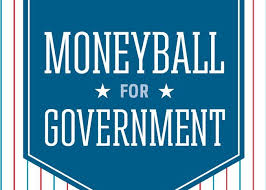There is a push to make governments design and implement programs which are objectively testable, and then to test them when deciding whether to continue.
This is, of course, the basic approach of science. So it’s seems a good idea to expand it to government.
I reported on a meeting about one such push (here’s the story), which was built around a book called Moneyball for Government, playing off the “Moneyball” book and movie that concerned the Oakland A’s data-driven approach to improving their baseball team. (In case you’re wondering, nobody mentioned that the A’s were never able to win the World Series.) It was an impressive discussion with some ex-federal-government folks who lamented the lack of analysis about whether government programs work.
But (there’s always a but) the problem is that it focuses attention and funding onto those aspects of life which can be quantified. Government deals with lots of non-quantifiable things – liberty, freedom, justice, the American Way of Life, and all that. It’s possible that taking the Moneyball route could inadvertently reduce attention, spending and action on non-measurable items, to the detriment of all.
That is a problem in science, especially the social science, where you don’t study anything unless it can be measured, which means that the scientifically ineffable (so to speak) gets overlooked.


 Return to the Concord Monitor
Return to the Concord Monitor